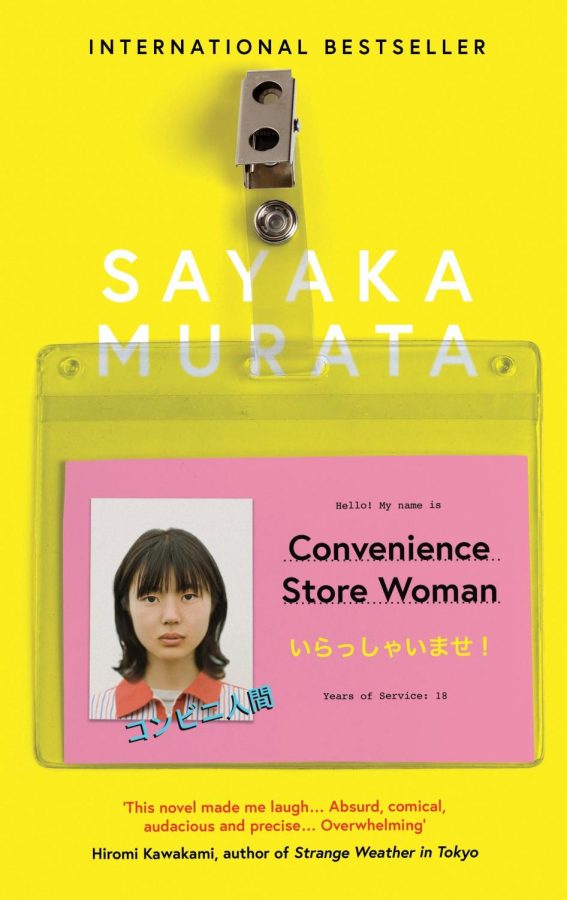The message of “Convenience Store Woman” is more important than ever
The novella speaks for those to don’t — and don’t wish to — conform to anyone’s standards but their own
April 18, 2023
The novella “Convenience Store Woman” by Sayaka Murata is described by author Ruth Ozeki as “a gift to anyone who has ever felt at odds with the world.” The work depicts 36 year old Keiko Furukura, a woman who struggles to be accepted by society for her contentment without a husband, children or full-time job. This struggle is familiar to women of all ages who have faced peer pressure to live up to these expectations.
As the world around us grows and changes to facilitate the acceptance of stigmatized people, it becomes crucial to share the wisdom in Murata’s story. All women have been held to vast and often unrealistic expectations throughout history despite the persistent affirmation of individuality. No one person is the same as the other, yet many choose to think that they are, or they ought to be, because normality is more appealing to them than sticking out. Keiko has been a convenience store worker for 18 years and is shamed by her friends and family due to her unambitious lifestyle. She expresses her intimate feelings of purpose and peace as a convenience store worker throughout the book, yet her friends continue to insist that she will never be happy unless she becomes just like all of them. She states, “When something was strange, everyone thought they had the right to come stomping in all over your life to figure out why.”
I often wonder what it will take for others to realize that contentment and happiness are subjective, fluid ideas that ebb and flow in all people in different ways. There is a saying that goes “one man’s trash is another man’s treasure” and though it’s often used literally for discarded items, I believe it can apply to the contentment of peoples’ lives. While some people would feel disgust or shame at being a convenience store worker for almost two decades, Keiko feels nothing but satisfaction and a deeper sense of self.
All people should be able to live unapologetically. I interviewed RV sophomore Jaelyn Hewitt, who is recognized by some students for her unique style that’s inspired by Japanese street fashion. Her favorite form of self-expression is dressing up however she wants. “Not fitting the standard is kind of fun,” she said.
She was asked if she’s ever felt the need to limit her self-expression and how that may have made her feel.
“I only feel like I need to limit it when it starts getting distracting to other people,” Hewitt said. “Like covering up my body and my stomach. That makes me feel kind of belittled, like I’m not allowed to wear what I want to without having to be pointed out and covered up.”
Additionally, I asked her if she has ever felt pressured to conform to a standard.
“I don’t really feel pressured to, but I do feel like there’s a lot of expectations on me,” she said. “And I’m worried that if I don’t do what makes people happy, then I might not be able to get very far.”
This concern is not hers alone. Fear of not appealing to others is a stressful experience for women everywhere, especially when there are consequences such as harassment and discrimination.
Jaelyn’s advice to others who want to express themselves is this: “You look the best when you feel confident in what you’re doing. Usually you can pull anything off if you have enough confidence.” Although being confident is not a solution to the way women are subjected to harassment for being different, having a positive and assured attitude will inspire others to stay true to themselves and their own forms of self-expression. Whether it’s through fashion, drawing, music, or writing, any form of self-expression is valid and a great opportunity to assert your own unapologetic individuality.
I would highly recommend reading Murata’s “Convenience Store Woman” for anyone who sees themselves as outcast or alien, and wants to feel heard through Murata’s honest and unique writing.







